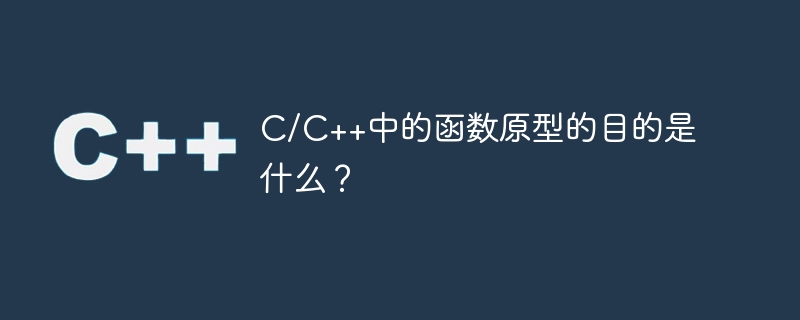

Here we will understand what is the purpose of using function prototype in C or C. The function prototype is used to tell the compiler the number of parameters and the data types required for the function parameters. It also tells the compiler the return type of the function. Based on this information, the compiler cross-checks the function signature before calling the function. If the function prototype is not mentioned, then the program may compile with some warnings and sometimes generate some strange output.
Problems may arise if a function is called somewhere but its body is not yet defined, but is already defined after the current line. The compiler can't find what the function is and what its signature is. In this case, we need function prototypes. If the function has been defined before, then we don't need a prototype.
#include<stdio.h>
main() {
function(50);
}
void function(int x) {
printf("The value of x is: %d", x);
}The value of x is: 50
This shows the output but it shows some warnings like this:
[Warning] conflicting types for 'function' [Note] previous implicit declaration of 'function' was here
Now use the function prototype , it performs without any problems.
#include<stdio.h>
void function(int); //prototype
main() {
function(50);
}
void function(int x) {
printf("The value of x is: %d", x);
}The value of x is: 50
The above is the detailed content of What is the purpose of function prototypes in C/C++?. For more information, please follow other related articles on the PHP Chinese website!
 Computer screen shows no signal
Computer screen shows no signal
 What does legacy startup mean?
What does legacy startup mean?
 Introduction to Document in JS
Introduction to Document in JS
 Euro-Italian Exchange official app
Euro-Italian Exchange official app
 How to download and save today's headline videos
How to download and save today's headline videos
 Reasons why website access prompts internal server error
Reasons why website access prompts internal server error
 Implementation method of VUE next page function
Implementation method of VUE next page function
 Bitcoin exchange
Bitcoin exchange
 What to do if the chm file cannot be opened
What to do if the chm file cannot be opened




